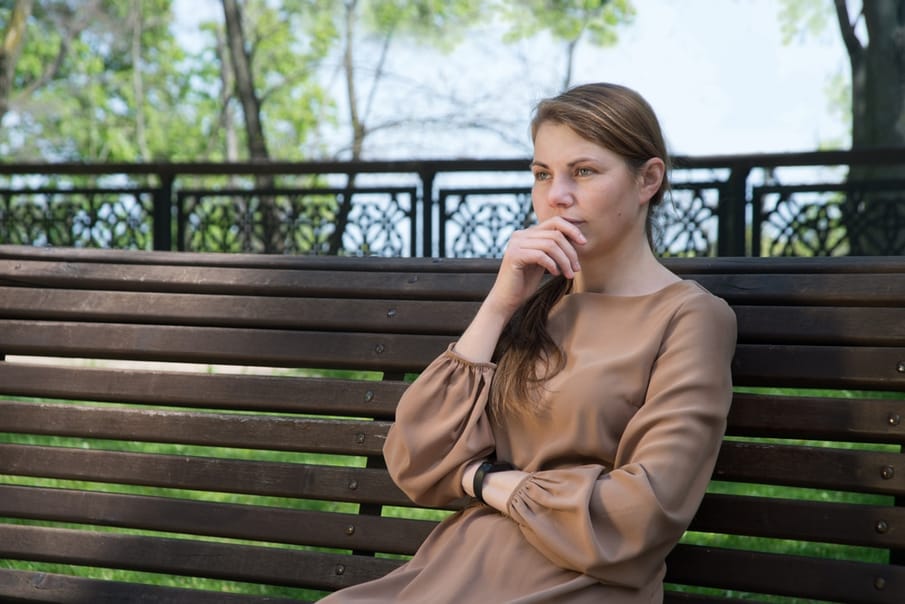For some people, seasonal depression happens in the summer rather than the winter. So why is that, and what can be done to ease it?
According to research from the Weather Channel and YouGov predicts that as many as 29% of UK adults will experience symptoms of seasonal affective disorder (SAD) – ranging from mild symptoms (such as low energy) all the way up to more acute symptoms like depression. Generally, it affects people who don’t usually experience poor mental health at other times of the year, and it can be a distressing and destructive experience.
While the majority of people with SAD experience it in the winter, a small percentage have ‘reverse SAD’, which manifests in the summer. A study published in the Einstein Journal of Biology and Medicine – which looked at those who experience depressive episodes linked to the seasons – found that while winter SAD affected 3% of the US population, summer SAD impacted 0.1% – that’s about 330,000 people.
Why does summer SAD happen?
Often, winter SAD is linked to reduced exposure to sunlight, and therefore vitamin D, which can impact our mental health, and is why supplements and light therapy are often recommended as treatment. But when it comes to summer SAD, the causes are less clear. However, there are a number of factors that may be contributing to it, including:
Disturbed sleep
Tossing and turning on hot summer nights can be a distressing experience, and sleep problems often have a knock-on impact on our overall wellbeing. When we don’t get enough sleep it can make us less resilient, irritable, forgetful, and less able to go about our day-to-day lives with ease. We may also develop a degree of anxiety about going to bed when we know it’s going to be a struggle, and so this can become a vicious cycle to get stuck in.
Trauma or difficult life events
If something traumatic has happened to you at a certain time of year, it may be that you come to associate that season with the event. For example, if you were bereaved in the summer, the signs of the season returning again may trigger painful memories around in a way you do not experience at other times of the year.
Body image concerns
In the warmer weather, our bodies are often more on display as we wear less and lighter clothes. For some people with body image concerns, this can be a difficult thing to navigate and can lead to stress and anxiety around dressing for the summer. Feelings that may feel less present in the winter may suddenly come to the surface, and it can feel confronting, creating additional challenges to navigate each day.
Struggling with the heat
Feeling hot and bothered can be irritating but, for some people, the heat can feel completely overwhelming. They may find that they are more irritable as they struggle to regulate their temperature, and with extreme temperatures becoming more common without the mass infrastructure to deal with it, a lot of us struggle to maintain a good temperature in our homes – making it feel like there’s no escape. Heat can also affect other areas of our lives such as our appetite (plus, you may find you rely on quick pre-made meals and takeaways rather than spending time cooking) and even our libido, which can impact our relationships.
Eco-anxiety
Summertime can also trigger feelings of eco-anxiety as we may be faced with extreme weather conditions and news of environmental emergencies. With it may come feelings of hopelessness and depression, and it can be difficult to know what to do next. Discover Happiful’s tips for dealing with eco-anxiety.
I think I have summer SAD, what do I do next?
As with any mental health problem, if what you are experiencing is impacting your day-to-day life, you should reach out to your GP or a mental health professional. They may offer you counselling or medication, both of which can be effective means of support.
You may also want to talk to your loved ones about what you’re going through – letting them know that you may struggle through the summer months, and perhaps sharing the ways this may manifest itself for you, and how they can best support you.
And while SAD can be a debilitating and distressing experience, for most people it is a temporary experience, with an end in sight. And once you know what is happening to you – and perhaps consider why, too – taking care of yourself through this challenging season may become that much easier.


Comments